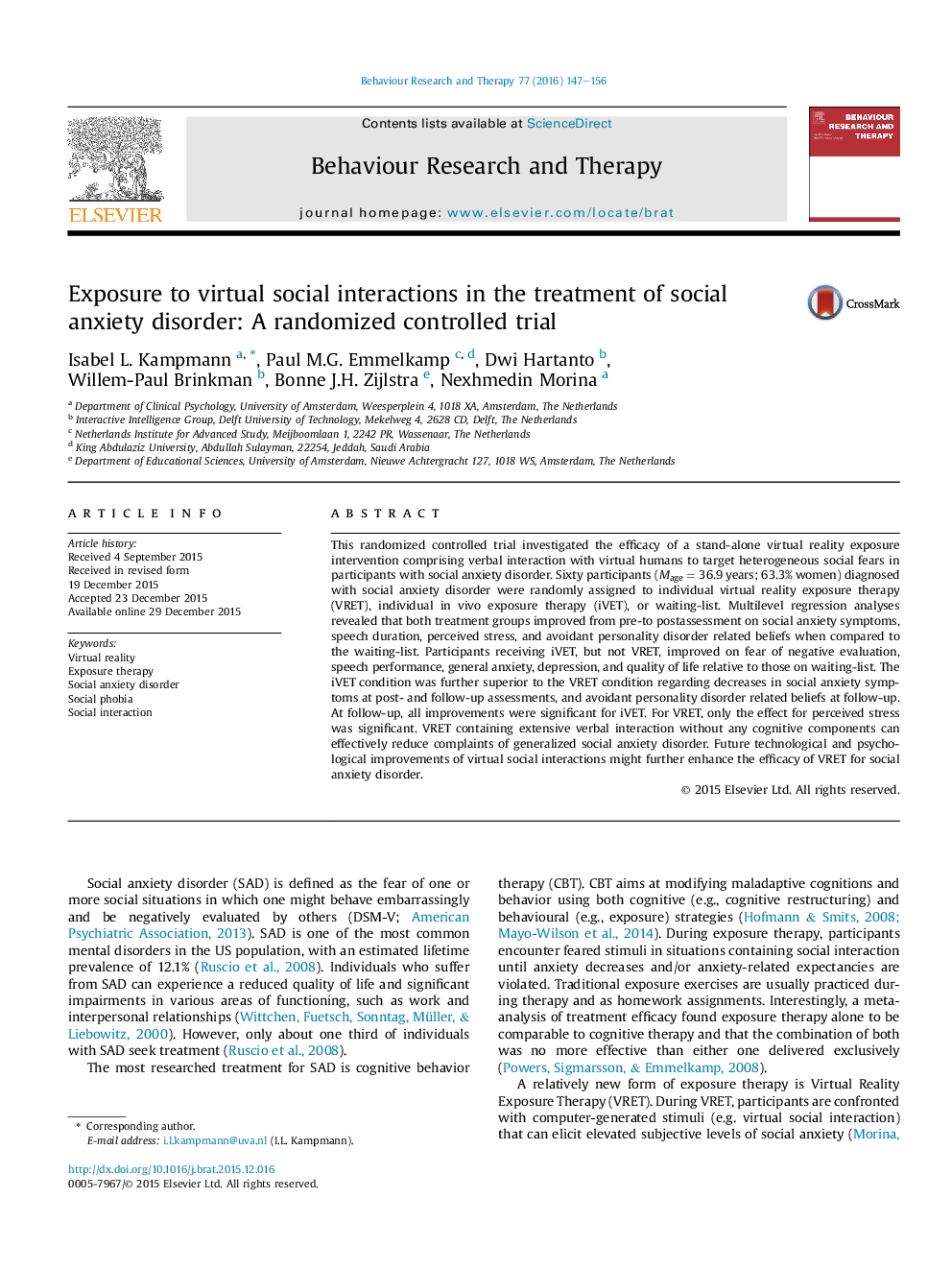| کد مقاله | کد نشریه | سال انتشار | مقاله انگلیسی | نسخه تمام متن |
|---|---|---|---|---|
| 901799 | 1472772 | 2016 | 10 صفحه PDF | دانلود رایگان |
• Virtual reality exposure therapy (VRET) for social anxiety disorder (SAD) was tested.
• Sixty patients with generalized SAD were treated with either VRET or exposure in vivo.
• Exposure to virtual social interactions was effective in reducing levels of SAD.
• Treatment effects could also be assessed in a behavioural assessment task.
• Research is needed to further enhance treatment efficacy of virtual interventions.
This randomized controlled trial investigated the efficacy of a stand-alone virtual reality exposure intervention comprising verbal interaction with virtual humans to target heterogeneous social fears in participants with social anxiety disorder. Sixty participants (Mage = 36.9 years; 63.3% women) diagnosed with social anxiety disorder were randomly assigned to individual virtual reality exposure therapy (VRET), individual in vivo exposure therapy (iVET), or waiting-list. Multilevel regression analyses revealed that both treatment groups improved from pre-to postassessment on social anxiety symptoms, speech duration, perceived stress, and avoidant personality disorder related beliefs when compared to the waiting-list. Participants receiving iVET, but not VRET, improved on fear of negative evaluation, speech performance, general anxiety, depression, and quality of life relative to those on waiting-list. The iVET condition was further superior to the VRET condition regarding decreases in social anxiety symptoms at post- and follow-up assessments, and avoidant personality disorder related beliefs at follow-up. At follow-up, all improvements were significant for iVET. For VRET, only the effect for perceived stress was significant. VRET containing extensive verbal interaction without any cognitive components can effectively reduce complaints of generalized social anxiety disorder. Future technological and psychological improvements of virtual social interactions might further enhance the efficacy of VRET for social anxiety disorder.
Journal: Behaviour Research and Therapy - Volume 77, February 2016, Pages 147–156
